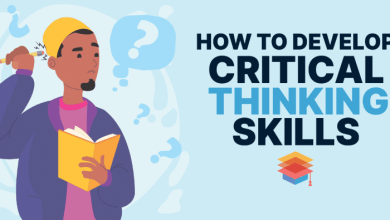
The John Locke essay competition has become a beacon of academic excellence for high school students worldwide, providing a rare opportunity to engage in rigorous thought, showcase intellectual curiosity, and impress university admissions boards. Named after the influential 17th-century philosopher, this annual competition is not just about writing a good essay—it is about demonstrating critical thinking, original analysis, and a command of academic writing. If you are a student aiming to stand out among global applicants and prepare for a future in top-tier institutions, excelling in the John Locke essay is a challenge worth embracing. Let us explore how to do that effectively.
Understanding the competition
The John Locke essay competition invites students aged 15 to 18 to submit essays in categories such as philosophy, politics, economics, history, psychology, theology, and law. It encourages participants to think independently and respond to one of several challenging prompts provided each year. Organized by the John Locke Institute, the competition values reasoned argumentation over rhetoric and places high importance on evidence-based writing.
Why it matters
Winning or being shortlisted in the John Locke essay competition can significantly enhance your academic profile. It demonstrates your ability to work independently, engage with complex ideas, and write at an undergraduate level—all qualities valued by elite universities like Oxford, Cambridge, and Ivy League institutions. Even participation itself shows ambition and initiative, which are essential traits in higher education.
How to choose the right question
Selecting the right prompt is the first strategic decision you must make. Choose a question from a subject you are passionate about and familiar with. Passion will keep you motivated during research and writing, while familiarity will allow for deeper analysis. Avoid topics that are too broad or outside your intellectual comfort zone unless you are confident in your ability to master them within the submission timeline.
Crafting a strong argument
A successful John Locke essay is more than a summary of facts. It presents a unique and logically developed argument backed by reliable sources. Begin with a clear thesis statement, and make sure each paragraph contributes to advancing your argument. The judges look for essays that present new insights or perspectives, not just rephrased textbook ideas. Use scholarly sources, academic journals, and philosophical texts to strengthen your position.
Maintain structure and style
Your essay should be clear, coherent, and properly structured. Use a formal tone and ensure that every paragraph flows logically. Proper citations and a complete bibliography are essential. Stick to the word count limit (usually 2,000 words), as exceeding it may disqualify your entry. Proofreading is a non-negotiable step. Even the strongest arguments can be weakened by grammatical mistakes or typographical errors.
Seek feedback and revise
Once your first draft is complete, seek feedback from mentors, teachers, or academic advisors. A fresh set of eyes can catch inconsistencies, unclear reasoning, or weak areas. Revise your work thoroughly based on constructive criticism. A polished essay shows maturity and attention to detail.
Final thoughts
The John Locke essay competition is a valuable opportunity to challenge your thinking, hone your academic writing skills, and gain recognition from prestigious academic circles. Whether you win or not, the process of crafting a well-argued essay will prepare you for university-level work and open new intellectual doors. If you are ready to take on this exciting challenge, start early, think critically, and write with purpose.




